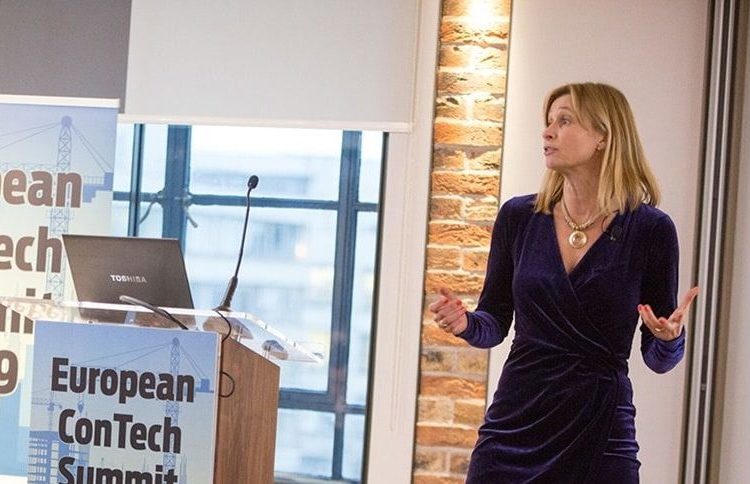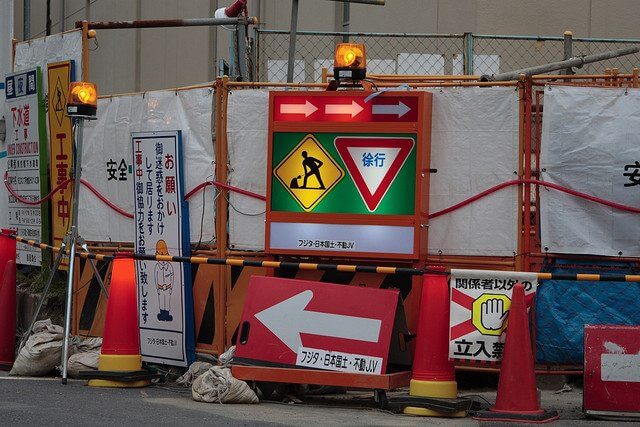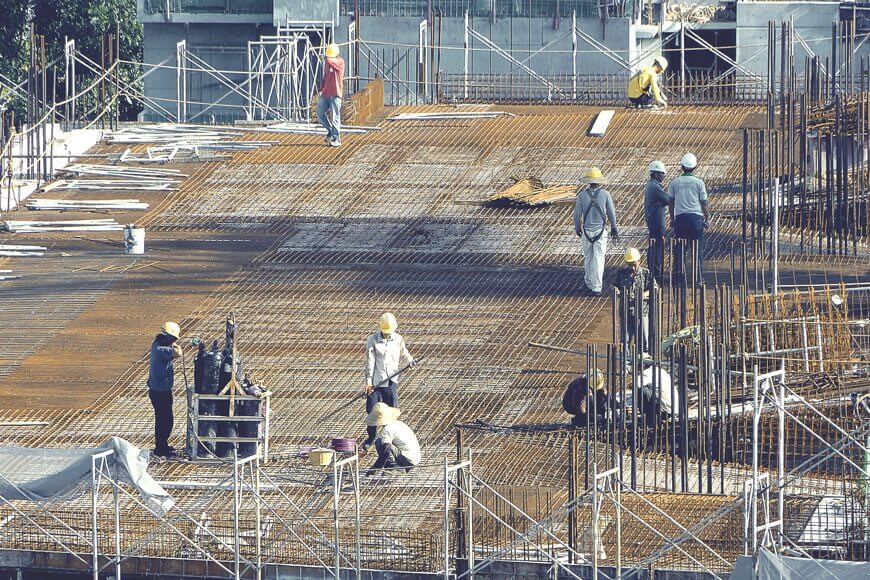Suzannah Nichol, Chief Executive at Build UK, was also part of the European ConTech Summit 2019 that took place in London. Today we take a closer look at her inspiring keynote speech as we continue our coverage of the conference.
Mrs. Nichol started her speech by reminding the audience that this has been a very challenging year for the construction industry:
“With Brexit, dealing with the fallout from Grenfell and the collapse of Carillion, it’s been quite a year and I don’t think it’s going to get any easier.”
It quickly becomes clear that construction is under great pressure. The sector has to change its core systems and processes soon.
[click_to_tweet tweet=”Suzannah Nichol explains why the entire supply chain needs to change!” quote=”Suzannah Nichol explains why the entire supply chain needs to change!”]
But for that paradigm shift to be successful, the change has to come from the entire supply chain. This is where digital tools are expected to play a decisive role.
“The potential for digital tools in our sector is absolutely enormous. They ‘ve got a lot of potential in offsite, in design, in the true implementation of BIM. The opportunities are endless but we need to change some of our business practices so we can realise the potential,” noticed Suzannah Nichol.
With that in mind, it doesn’t take much to understand that it’s a matter of time for construction to enter a new digital era. The question is whether the industry is ready to lift that burden itself.
If not, someone else will eventually do it. Global leaders, such as Amazon, have already started to build up the firepower to change construction.
“Change is going to come from you. Everybody thinks that somebody else needs to change.”
It’s up to everybody here to change their behaviour and drive that change,“ said Mrs. Nichol while talking to the audience.
And she added:
“It takes the whole of the supply chain to drive the change. And the challenge we always have is that we don’t have a system. So everyone invents their own solution. And if you are somebody who wants to drive that change, if every technology is different on every site you go to we are never going to change our pace, we are never going to change the velocity that we actually need to move this industry forward.”
The biggest challenges in construction
After last years’ events, both UK construction and the global industry have to face a number of obstacles and a lot of mistrust.
As Suzannah Nichol pointed out:
“The construction sector is facing a huge amount of challenges at the moment. We are right in the middle of Brexit, we are still looking after the outcome of Grenfell tower, and we are looking at how we can build better buildings for people to feel confident to live in.”
Just a year ago we saw the collapse of the second largest contractor, Carillion, so it’s quite a challenging environment all around in terms of financial, viability, recruiting the next generation and delivering construction projects on the ground.”
In a sentence, it is apparent that construction is battling against a vast array of problems which in the end all boil down to the same issue. The supply chain in construction hasn’t really changed the way it operates.
The only difference with the past is that now the stakeholders in construction can exchange data and updates much faster. However, due to the lack of a common digital language and understanding this trade of information isn’t as effective as it should be.
In any case, though, people in construction need to fight through these challenges and actively ask for the transformation of the sector. Otherwise, there is always the danger that people will just continue working in a way that makes them feel comfortable instead of helping them improve.
“With all that challenge, people actually retreat and go back to working with what they know, what makes them feel comfortable while what we really need is for people to go over their comfort zone and look for something different”, highlights Mrs. Nichol.
The potential for digital technology in construction is enormous
The good news is that the potential for the industry is still there. If the sector manages to escape from its habits, then things in the sector can change for the better at a fast pace.
“I personally believe that construction is a bit behind the curve digitally, we’ve got lots of good ideas, we are looking at some good basic technologies but the potential is enormous and I don’t think we are even touching the surface yet.”, noticed Suzannah Nichol.
As to where this potential for the construction industry is hidden, the Chief Executive at Build UK identifies three main areas: offsite construction, digital and productivity.
“The potential for digital in our sector is absolutely enormous. On some basic day-to-day use of technology, more use of iPads, more use of basic computer programmes, but also we’ve got massive potential in more offsite, in design and the true implementation of BIM.
I think the opportunities are endless but we work in a way that doesn’t really enable digital to help us at the moment. We need to change our business practices so that we realise the potential.”
Collaboration is again the secret for a meaningful change in construction. All the different agents of the sector need to come together and understand the problems, the goals and the drivers of each side. Only under these circumstances, it will be possible for construction to set a common destination and move forward collectively as a whole.
“If we want a technical solution, it has to be collaborative, it has to be at scale. We need to understand what will drive that change. We need to collaborate effectively and we are nowhere near even talking to each other in the same language.”, suggested Suzannah Nichol.
“Construction is open for business”
By now, it is understandable that despite the challenges and the lack of collaboration in the industry the potential for digital technologies is still huge. Construction is ready to change and can be a field of remarkable opportunity for those who are ready to take up the challenge.
“We don’t actually change the way we work but the potential is there. The industry is ripe for change. So if you see that future and grab that potential to invest in our industry, you might be rich actually,“ emphasised Mrs. Nichol.
And she concluded:
“The opportunity is now. So if you are sitting on the sidelines, as an investor wondering where you are actually going to place your bets, construction is a pretty good bet. Despite Brexit, 90% of every pound stays in the UK. We are a big driver of value, we are 10% of GDP. So if you are in, if you are interested, I think construction is open for business!”




